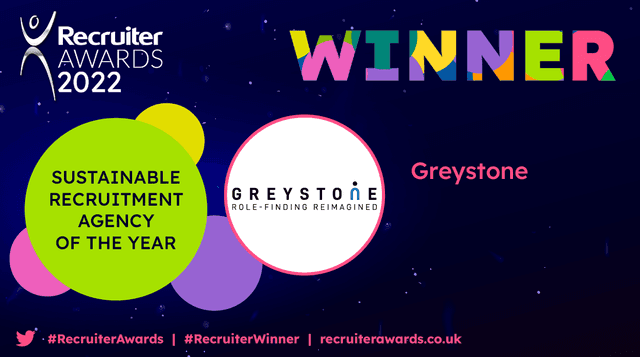
Andrew Keen - Head of Digital Delivery for Ramboll
Recently we had the pleasure of catching up with Andrew Keen, Head of Digital Delivery for Ramboll Building Services in the UK where he shared his insights into the continuum of the Digital Engineering discipline.
Andrew’s passion for digital innovation started in 1981 when his parents bought him a ZX81 computer and since then he has followed the digital evolution. Andy is driven by the fact that he sees daily how transformative digital innovation can be, and with a career spanning over 30 years, Andy has amassed highly valuable experience through driving digitisation and transformation on some impressive projects.

The journey so far
Innovation is ultimately driven by talent and having the right people in place
For me, my journey with digital engineering began in the late 80s and for several years it was slow and hard to change people’s opinions and practices. Hardware and software were miles away from where it is now, sometimes slower than using more traditional methods.
It has been an evolution and we have all evolved with the technology to a point where it has become part of our everyday lives. Its inclusion in our work is now accepted and expected. I now find myself in situations where I am not asking colleagues to embrace digitisation, but to stop using an application that is obsolete from only five years ago!
Digital innovation and transformation is apparent in all disciplines within Ramboll. If we plotted it on a graph, year on year you would see the trend is up. I collaborate with several colleagues across the disciplines, and they have all continued to innovate their working practices. There has also been a drive to align our practices so we can all benefit from each other’s advances.
Ramboll treads a careful line of making steady progress with digital innovation without overwhelming our teams with the scale and pace of change. As digital leaders, we need to bring everyone on the journey with us.
I would say computational engineering has been the game-changer for the industry where we use algorithms and computational power to solve engineering problems. A good example of this is our Existing Asset Decarbonisation tool.
What tech does is facilitate good decision making, like computational engineering. It takes the grunt-work out of calculating the permutations, which then frees the engineer to be creative and innovative, so our roles will change, not become obsolete.
The future of Digital Engineering
It is a continuum, constant evolution and expanding exponentially!
From talking to peers and colleagues, a lot is being discussed. A few headlines for me would be:
1. AI becoming more prominent in our decision-making process, with computational engineering being one step in that direction.
2. VR so clients can have more of a hand in the design process.
3. And a big one we have been discussing is the concept of a single analytical model, where it is not geometry in this model, but a mathematical interpretation
One of the biggest challenges I face daily is caused by digital technology itself! We can now embed masses of data into the elements in our models, but just because we can, it doesn’t mean we should. The growth of our models is leading to the need to upgrade hardware and infrastructure accompanied with an increasing CO2 footprint. There needs to be a wider industry understanding of the value of the data and if it is applicable to a project.

In a skills short market, what can be done to encourage people into the industry and incentivise them to train in these lacking disciplines?
There's no doubt that we need to grow the available talent pool and in order to do that, we need to make the industry more attractive, especially to those who have not been well represented previously.
One of the rewarding ways of doing this is through outreach programmes that encourage young people to discover an interest in STEM subjects and our industry. Ramboll’s STEM ambassadors regularly visit schools or host visits to our offices to share their experiences and inspire young people through fun and interactive activities.
As an industry, we should also make sure we are investing in earn and learn opportunities for people to learn, develop and consolidate their knowledge and skills while working. With the cost of university making degrees less affordable, apprenticeships can be a great way of attracting talent. As a gold member of the 5% Club, more than 5% of Ramboll’s workforce is on a structured earn and learn programme.
But we also need to look at how we retain talent and continue to engage those working in the industry. Making sure we've got inclusive policies and practices, like flexible working so that people don’t feel like they have to sacrifice their career ambitions when their circumstances change.
Ramboll also has a return to work programme to support people back into a rewarding career after taking a break – recognising that their expertise remain incredibly valuable, and that the experience of having taken a career break can bring with it a unique perspective that will benefit their work.
Looking ahead – Advice to others
The only way to make the digital space more appealing is by proving it works and makes the user’s life easier.
Understanding how your colleagues work currently and where their pain points are is fundamental. What affects the team day in, day out? How does this impact them? Once you have collated and ordered their challenges by frequency/impact, tackle the easiest of the top five. Not only will this will build confidence, but it shows that you are acting and listening to them. The most important part of this is getting everyone involved and invested so you are all on the journey together.
The key to making an impact and staying relevant and desirable in the digital era of building services design engineering, I think, comes back to the philosophy that has been the bedrock throughout my career – ‘Embrace Change’. Engage with your senior colleagues and benefit from their experience, whilst at the same time involving them in your ideas / innovations. Or if you’re an experienced engineer, engage with your junior colleagues, share your experience, listen to their observations and exchange ideas with them. Input into any digitalisation / innovation that is occurring, become part of the process. And lastly, learn to code! Grasshopper and Rhino inside are great places to start.
The industry is facing some significant challenges – not least the geopolitical situation, green energy transition, net-zero carbon, biodiversity loss, etc. However, innovation thrives on challenge; we're problem solvers at heart and I think the next year or so will see some interesting developments and ideas emerge.




